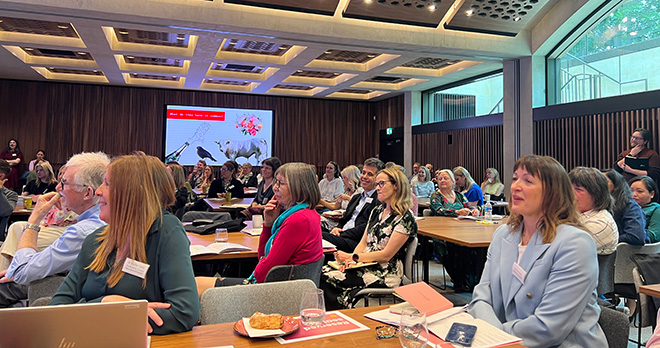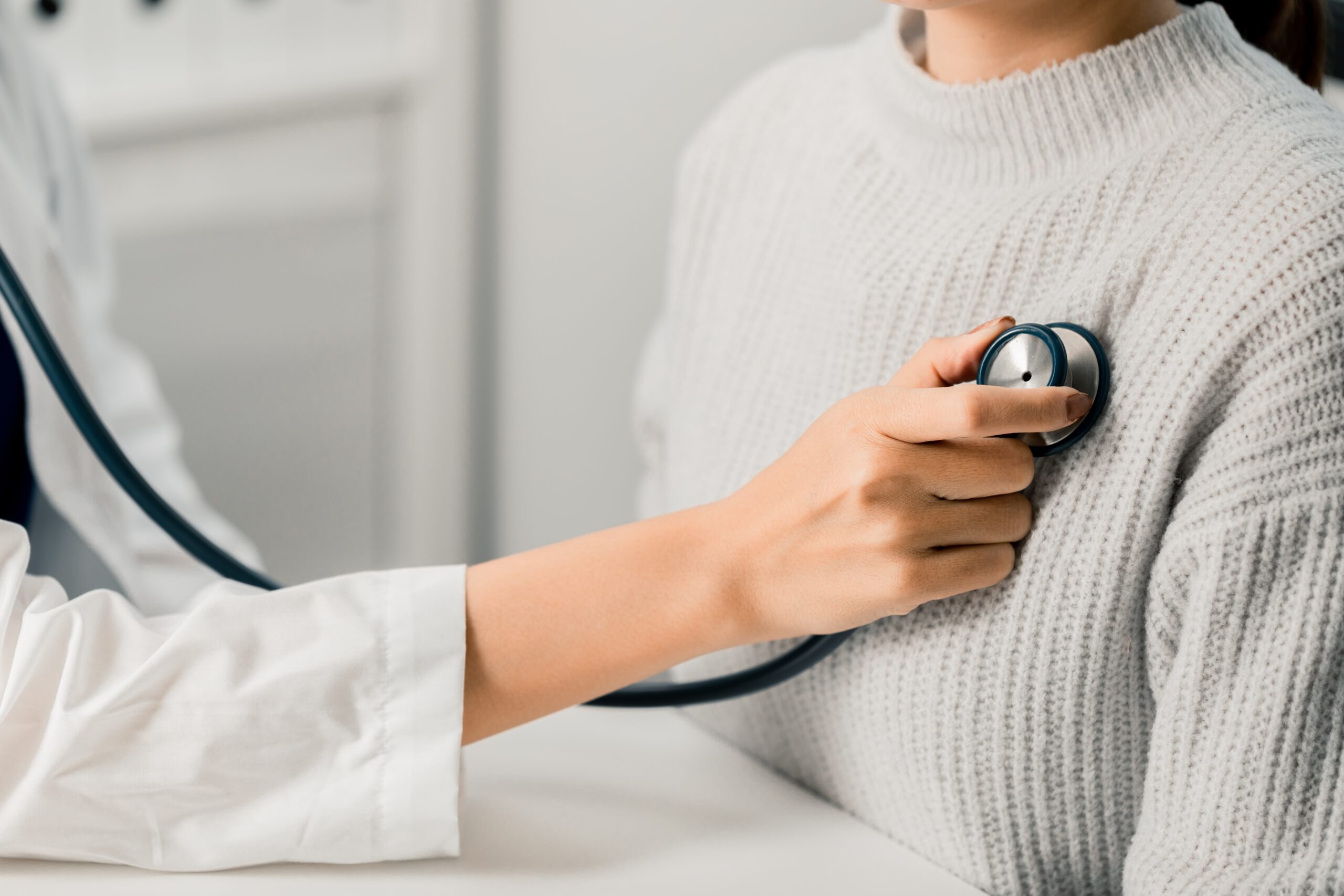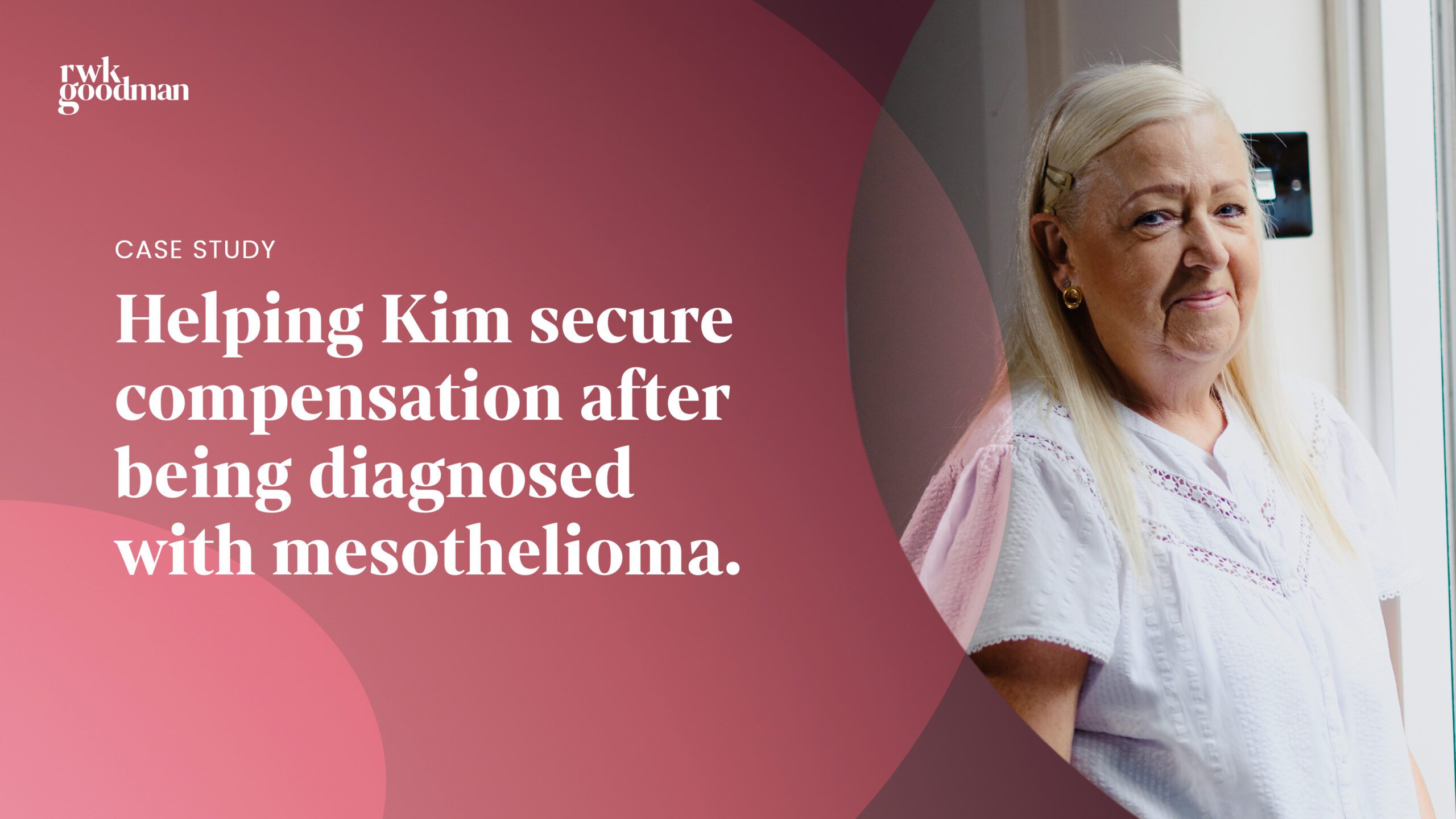Review of the fourth Ahead Together Conference: Reclaiming Hope

Article written by Dr Jessica Fish, University of Glasgow & St George’s University Hospitals NHS Foundation Trust
Four conferences in, I think we can safely say that Ahead Together is not only a conference but a community united in its interest in supporting families affected by brain injury. Returning to a fantastic events space in the newly renovated Rhodes House in Oxford, this year’s event felt like a homecoming for this community.
Opening remarks
Opening the event, co-founder Tracy Norris-Evans, (Solicitor and Head of Injury at RWK Goodman), framed the theme of the day, reclaiming hope, as a shared responsibility for families, professionals and systemic change. Furthermore, she described Ahead Together as not just a conference title but a mindset. This spirit was evident in each of the day’s events. Touchingly, co-founder Dr Audrey Daisley (Consultant Clinical Neuropsychologist at the Oxford Centre for Enablement and Connect Neuropsychology) shared that the poet Lemn Sissay, keynote speaker at a previous conference, had described the group as feeling like a family, and echoed his sentiment.
John Keen: A father’s account of hope
The first speaker, John Keen, whose daughter Lucy sustained a brain injury over 20 years ago, offered reflections that resonated deeply. His account contained moments of devastating loss, incredible bureaucracy and inadequate care that are sadly all too common, alongside those of remarkable compassion and thoughtfulness (e.g. hospital staff decorating Lucy’s room to mark her birthday, while she remained in a coma). These shaped the family’s experience of hope over time and enabled them to persist in the pursuit of a full and active life for their daughter. Keen made clear although the medicolegal settlement was lifechanging and enabled Lucy to live in an adapted home ideally suited to her needs, his main source of hope has been Lucy herself, through her spark and humour, remaining a central member of their family.
Keynote address: Dr Rachel Clarke on storytelling
The keynote speaker was Dr Rachel Clarke, on the topic ‘When all hope seems lost: Life, death, major illness and the spectacular power of storytelling’. Rachel is a palliative care doctor and acclaimed storyteller, who has written three award winning books on aspects of her experience working in NHS palliative care services and hospices. Most recently, Breathtaking (2021) focussed on working through the covid-19 pandemic, and was dramatized for ITV in 2024. Prior to this, her book ‘Dear Life’ (2020) addressed the topic of death, dying, and palliative care. Rachel dispelled preconceptions about working in this setting, highlighting the joy and meaning that can imbue the end of life when care teams hold the person and their values and narratives in mind. She shared stories of prescribing champagne, pink gin, and even reuniting a man with his prize-winning bull, acts that told patients you matter. Her message was that our words, our presence, and our willingness to bear witness can transform fear into meaning. She challenged professionals to see storytelling not as an add-on, but as central to good care. Quoting Rudyard Kipling, she showed us “words are the most powerful drug used by mankind”.
The role of hope in rehabilitation outcomes
The rest of the programme wove together voices from neuropsychology, social work, nursing, case management, the law, and lived experience. Dr Alan Gray (consultant clinical psychologist at Berkshire Healthcare NHS Foundation Trust) explored the role of hope as an overlooked asset in rehabilitation outcomes, noting its associations with treatment adherence, duration of admission, and even mortality. He described using the process of goal planning to instil hope and cautioned that hope is double-edged and can potentially undermine adjustment if not rooted in reality but underscored its therapeutic value when well held.
Redefining roles and boundaries
Nicola Hughes then offered a deeply personal and eloquent talk about her husband’s brain injury and their family’s long journey through trauma, loss, grief and adaptation. Her honesty about surviving in the moment, redefining family roles, and eventually setting boundaries gave powerful insight into the courage required of family members. “Hope was a motivator,” she said, which helped her to navigate the initial trauma, “but it could also crush”, particularly when needs of the broader family are not fully considered.
Reasonable hope
John Ling, Nurse Consultant at King’s College Hospital introduced the idea of reasonable hope, following Kaethe Weingarten. He highlighted the complexity of the brain injury pathway from the family perspective, and the complexity of the family systems themselves. Reasonable hope was operationalised as involving modest, shared actions that support connection and agency, in the midst of these multiple sources of complexity. He invited professionals to co-create “conversational spaces for hope” and highlighted the importance of practical actions and demonstrating that hope is a verb not a noun.
Acquired Brain Injury action plan
Opening the afternoon session, Chloe Hayward of the UK Acquired Brain Injury Forum (UKABIF) updated on her organisation’s active lobbying for improved brain injury services throughout the UK, with notable events including publication of a new report on the economic costs of brain injury, the imminent opening of the National Rehabilitation Hospital in Nottingham, and commitment from government to develop an ABI Action Plan.
Panel discussion: Forging hope for parents after child TBI
Next, a panel discussion facilitated by Dr Cliodhna Carroll, Consultant Clinical Neuropsychologist, took place, on ‘Forging hope for parents after child TBI’. The panel featured Dawn Greenaway, whose young son sustained a severe injury in 2018, alongside Lisa Turan, CEO of the Child Brain Injury Trust, and Vicki Gillman, Managing Director of Social Return Case Management. Themes included how families navigate medical ambiguity, holding onto hope without being naïve, and balancing grief with love. Dawn, in her moving account, put it simply: “I didn’t know what tomorrow would bring, but I knew I would be there for it.” She advised professionals to remain optimistic whilst being honest, to pay attention to the tiniest improvements, and to encourage and empower families as well as validating their challenges and normalising setbacks. Lisa Turan noted that hope “doesn’t mean denying reality, it means believing in connection, in meaning, in what is still possible.” Vicki Gilman described that “things move faster in an atmosphere of hope”.
A framework for navigating hope
Dr Gaby Parker, Consultant Clinical Neuropsychologist at the Royal Free and Allied Neuro Therapy offered a useful framework for navigating hope and expectation with families in rehabilitation, RESPECT, where:
- Reflection
- Exploration
- Sensitivity
- Possibilities and Probabilities
- Expectations
- Communication
- Tolerance and Thankfulness
The ‘T words’ in this acronym were particularly powerful, with Gaby highlighting that families are often asked to show their best selves at their worst moments, and as professionals our jobs are not only to tolerate when they cannot be at their best but also to understand it, to honour the scope of what they are facing and to be grateful for their engagement in the process, which it is a privilege for professionals to be a part of.
Hope in litigation
Tracy Norris-Evans then spoke with Ruth Alexander, mother of twin daughters, who led a thoughtful session titled, Taking / Giving: Hope in Litigation, which offered insights into how families experience this complex and lengthy legal process, and the idea of balance between hope and realism resonated again.
Concluding remarks
The final talk brought the ethos of hope into youth-focused rehabilitation. Dr Penny Trayner, Consultant Paediatric Neuropsychologist with Clinical Neuropsychology Services (and DJ and radio presenter beyond this!) gave a dynamic presentation on Great Expectations: Hope as a Family Rehabilitation Goal. She described her use of DJing and other aspirational activities within paediatric neurorehabilitation, developing cognitive strategies while supporting the formation of new, positive identities. More engaging than many rehab activities and rich in meaning, her approach reminded us that rehabilitation is about identity, agency, and fun.
The fourth Ahead Together conference again offered things CPD events do rarely. Individual attendees receive not only what we expect, such as information and practical advice, but also powerful stories, an opportunity for deep reflection and learning, and membership of a community of practice. I would recommend it to anyone who comes into contact with families affected by brain injury. The Ahead Together community and its flagship events are key drivers of the transformation of the way families are being considered and involved in rehabilitation and beyond that in life after brain injury.
If you would like to discuss making a potential claim for a brain injury suffered by yourself, or someone else, please contact our specialist brain injury team and we can assess your claim.
Call now
More insights from our brain injury experts.
View more articles related to Brain Injury, Compensation Protection, Injury and Team Around the Client



